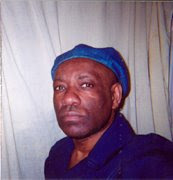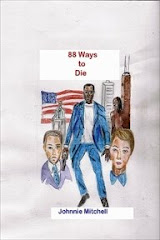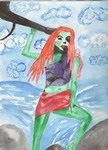In this era of billion dollar bail outs of the banking industry, and the auto industry looking for such a deal, one thing is starting to be blatantly obvious to me. It’s good to have a billion dollar business. Forget the fact that the fearless leaders of your business have made bad decision after bad decision for a number of years, finally throwing the company deep into the red, and hopelessly unable to pay back any debt.
Such a scenario would surely drive a mere multi-million dollar business in bankruptcy, or doom a pitiful, only a gross in the thousands business, into complete close down.
Oh, but we can’t allow a bedrock industry to go under, so the government must step in and bail them out to the tune of even more billions of dollars.
Can you imagine Joe Businessman, CEO of a struggling right at a billion dollars company, on a busy big city street in route to a big bail out presentation. He uses his cell phone to check his company’s funds and makes a startling discovery. There is only 999,999,999 dollars in the account, one short of the highly coveted billion dollars.
Panic instantly sets in. If the company isn’t worth at least a billion the chances of obtaining a bail out drops like a rock. Joe checks all his pockets looking for a single dollar bill he could use to deposit in a nearby bank and get the company account up to a billion in time for the meeting. He has no such luck. He has only twenty-three cents in his pocket.
He figures he can get help from somebody on the street. Anybody on the street. He moves to a kindly looking elderly lady with white hair.
“Excuse me, ma’m. Do you have a dollar bill to spare?”
“A dollar bill. Hell no. I’m retired on a fixed income. I have to choose between eating and medicine. A well-dressed young buck like you should be offering me money. Say a hundred bucks.”
“I don’t. I don’t have that now.”
“Well I don’t have a damn dollar. So get lost, Armani boy ”
Joe couldn’t believe her reaction. Undaunted, he moves along the street until he spots a well-dressed man in his thirties leaving a cab carrying a briefcase. He heads toward an office building. Joe sees him as a sure donor. He approaches him.
“Excuse me, sir. Do you have a single dollar bill I can borrow from you. It’s a real emergency.”
The man stops, and then suddenly glares at Joe.
“It’s you. It’s you Is this a sick joke? After what you did to me.”
“Excuse me?”
“You don’t remember me, do you?”
“Should I?”
“I worked for your company. In accounting. You laid me off. I’ve been unemployed for six months. And you have the nerve to ask me for a dollar. I could strangle your ass.”
The man charges after his ex-boss. Joe turns and races away with the man hot on his heels. He is fearing for his life until the man trips and falls flat on his face.
Joe races around a corner and stops near an alley. That’s when he spots an unshaven homeless man, dressed in several shirts and winter boots, leaning against a building wall.
“What are you looking at?” snaps the homeless man.
“Nothing buddy. But I could use your help. If you have what I want.”
“And what do you want from a lowly homeless man like me?”
Joe moves in closer. “Just a single dollar bill. That’s all I need. One dollar bill.”
“I know times are tough. But why does a Armani wearing fool need a dollar bill?”
“I can’t go into that. But uh. I can make it worth your while. Look uh. Look uh.” Joe takes off his Rolex watch. “If you have a dollar bill I will give you my watch for it. A real Rolex.”
Joe holds the watch out so the homeless man can examine it.
“One dollar for this watch. You’re giving me a Rolex watch for one dollar. Is that it?”
“Yes.”
“Okay. We can do this.”
The homeless man searches about in his pockets until he locates a very wrinkled one dollar bill. He smooths it out and hands it to Joe.
A big smile comes to Joe’s face. “Thank you. Thank you so much. I appreciate it. I appreciate it so much.”
He gives the Rolex to the homeless man and then dances happily back up the street.
The homeless man looks closer at the Rolex.
“Is this a reality show? Or real life gone crazy? You can’t tell any more here in America.”
Wednesday, February 18, 2009
Saturday, February 7, 2009
Michael Phelps is Pimp Daddy P
If you haven’t been on the planet Venus the last few days you probably know about the latest celeb scandal. The picture of Olympic swimming sensation, and designated all American boy, Michael Phelps, bonging away on some weed.
Besides the usual support or condemnation connected with such stories, the most interesting thing that has come out of it is some companies Phelps is a spokesman for have stood by him. In the world of media, no outlets are more wimpy and afraid of controversy than the major TV networks and corporate advertisers. Remember Magic Johnson losing endorsement when he announced he had the HIV virus, and Kobe Bryant losing out when he was accused of rape.
I suppose it helps Phelps that, although illegal, marijuana use has become quasi mainstream. Jay Leno routinely jokes about his band leader Kevin’s love of weed. A part of rapper Snoop Dogg’s persona is him being a notorious smoker of pot.
Here’s my flight of fancy. Suppose it comes out that Michael Phelps has a much darker side. I present you with Michael Phelps, Pimp Daddy P, an inner city pimp.
Picture if you will a long lanky white guy decked out in retro 1970s gear. A white wide-brimmed fur hat that matches his double- breasted white maxi length fur coat. A grey silk shirt, black bell bottomed pants, and a solid gold medallion complete the ensemble.
On the cold mean inner city streets a silver Caddie with a Rolls Royce grill and hood ornament glides down the street, and then parks near a corner.
Trixie, a shapely young woman in a bright red mini dress, white vinyl boots, and a pink trench coat, moves in the direction of the Caddie.
Michael Phelps, aka, Pimp Daddy P, pokes his head out of the window.
“Hey baby. Have you got something for me?”
“Yeah Daddy.”
Trixie reaches into her cleavage and removes a wad of bills. She hands them to Phelps. He makes a quick count.
“Girl, is this all you have for me?”
“Yeah baby. It was rough out there tonight.”
Phelps becomes instantly agitated. “Rough out there. Rough out there So I guess if it’s rough out there I can’t make my car payments. If it’s rough out there I can’t keep you in fine vines. If it’s rough out there I can’t pay my rent. Bitch, get back on the corner and bring me some money, or I’m putting my foot all the way up your you know what ”
Trixie turns and scurries away.
Phelps slams his hand across the steering wheel. “Damn It’s hard out here for a pimp. Even if you’re a Olympic gold medalist.”
The Caddie zips away into the night air like a silver ghost.
Besides the usual support or condemnation connected with such stories, the most interesting thing that has come out of it is some companies Phelps is a spokesman for have stood by him. In the world of media, no outlets are more wimpy and afraid of controversy than the major TV networks and corporate advertisers. Remember Magic Johnson losing endorsement when he announced he had the HIV virus, and Kobe Bryant losing out when he was accused of rape.
I suppose it helps Phelps that, although illegal, marijuana use has become quasi mainstream. Jay Leno routinely jokes about his band leader Kevin’s love of weed. A part of rapper Snoop Dogg’s persona is him being a notorious smoker of pot.
Here’s my flight of fancy. Suppose it comes out that Michael Phelps has a much darker side. I present you with Michael Phelps, Pimp Daddy P, an inner city pimp.
Picture if you will a long lanky white guy decked out in retro 1970s gear. A white wide-brimmed fur hat that matches his double- breasted white maxi length fur coat. A grey silk shirt, black bell bottomed pants, and a solid gold medallion complete the ensemble.
On the cold mean inner city streets a silver Caddie with a Rolls Royce grill and hood ornament glides down the street, and then parks near a corner.
Trixie, a shapely young woman in a bright red mini dress, white vinyl boots, and a pink trench coat, moves in the direction of the Caddie.
Michael Phelps, aka, Pimp Daddy P, pokes his head out of the window.
“Hey baby. Have you got something for me?”
“Yeah Daddy.”
Trixie reaches into her cleavage and removes a wad of bills. She hands them to Phelps. He makes a quick count.
“Girl, is this all you have for me?”
“Yeah baby. It was rough out there tonight.”
Phelps becomes instantly agitated. “Rough out there. Rough out there So I guess if it’s rough out there I can’t make my car payments. If it’s rough out there I can’t keep you in fine vines. If it’s rough out there I can’t pay my rent. Bitch, get back on the corner and bring me some money, or I’m putting my foot all the way up your you know what ”
Trixie turns and scurries away.
Phelps slams his hand across the steering wheel. “Damn It’s hard out here for a pimp. Even if you’re a Olympic gold medalist.”
The Caddie zips away into the night air like a silver ghost.
Wednesday, February 4, 2009
An Obama/ JFK Comparison
As President Barack Obama moves into his second week of being in office, and Caroline Kennedy recently took herself out of the running for senate seat vacated by new Secretary of State Hilary Clinton, I started to think about the similarities between the presidential runs of Barack Obama and John F. Kennedy.
Despite their runs being some forty-eight years apart, there are parallels that can be drawn. Both made their runs when they were in their forties, younger than the usual fifty-sixty range for most presidential candidates. Consequently, they were both young and vibrant with a great deal of charisma. They also had young and attractive wives that quickly became style and fashion icons; and pre-teen children that the country could embrace.
On the potential liability side, Kennedy was a Catholic at a time when all previous presidents had been white Anglo-Saxon Protestants.
Of course, Obama is African American . Jesse Jackson had been the only semi-serious contender for a major party nomination. And there have been only a handful of black senators and governors.
Kennedy was able to overcome partly because he was a member of a very wealthy, celebrated, and well-connected family. He also had the support of powerful Iris Catholic politicians like Chicago’s mayor Richard M. Daley. The element that probably pushed Kennedy over the top was his mastery of the relatively new medium of televison. In a series of television debates he shined above most other politicians due to his charisma and ad lib sense of humor. His Republican opponent, Vice President Richard Nixon, was the direct opposite; uncomfortable, flat, and unconvincing in front of a television camera. Many experts believed Kennedy’s performance in the debates was a major deciding factor in turning the tide of the election in his favor.
Barack Obama was propelled from an early in his term senator to a national figure by his rousing speech at the Democratic Convention. His best-selling books reinforced his message of change and coming together for a common cause. Like Kennedy, Obama took full advantage of an emerging technology. Obama extensively used the internet to get his message across. More importantly, he used the internet to raise millions of dollars to finance his campaign before primary victories gave him greater access to more traditional means of fund raising.
Coming into his presidency, Kennedy was faced with a growing cold war fraught with tensions over the proliferation of nuclear weapons, and their potential use, which escalated into the Cuban Missile Crisis. On the home front there was the more visible than ever civil rights movement that was gaining momentum through television coverage and the emergence in statue of Martin Luther King Jr.
Obama inherits two costly wars in Iraq and Afghanistan, and the ongoing threat of Mideast inspired terrorism. Domestically, there is the economic down turn that has spiraled into the housing market debacle, slumping auto industry, the resulting lay offs and rising unemployment. Not to mention inflated prices and the spending withdrawal by consumers.
Kennedy relied, and Obama will rely on his ability to inspire Americans to keep a positive frame of mind despite the trying times they are facing.
Finally, Kennedy was receptive to the goals of the escalating civil rights movement at a time when some blacks were leery of starting trouble, and a high percentage of whites would have favored a government and law enforcement crack down on civil rights demonstrations.
President Obama serves as a obvious source of pride and inspiration for African Americans of all ages. Even more so for senior citizens past the age of seventy, some who endured through the hard knocks and dangers of being active participants in the civil rights movement. Most suffered daily indignities, and the hovering threat of physical dangers in their efforts to provide for their families. Many never thought they would see the day when an African American would be elected President of the United States.
Despite their runs being some forty-eight years apart, there are parallels that can be drawn. Both made their runs when they were in their forties, younger than the usual fifty-sixty range for most presidential candidates. Consequently, they were both young and vibrant with a great deal of charisma. They also had young and attractive wives that quickly became style and fashion icons; and pre-teen children that the country could embrace.
On the potential liability side, Kennedy was a Catholic at a time when all previous presidents had been white Anglo-Saxon Protestants.
Of course, Obama is African American . Jesse Jackson had been the only semi-serious contender for a major party nomination. And there have been only a handful of black senators and governors.
Kennedy was able to overcome partly because he was a member of a very wealthy, celebrated, and well-connected family. He also had the support of powerful Iris Catholic politicians like Chicago’s mayor Richard M. Daley. The element that probably pushed Kennedy over the top was his mastery of the relatively new medium of televison. In a series of television debates he shined above most other politicians due to his charisma and ad lib sense of humor. His Republican opponent, Vice President Richard Nixon, was the direct opposite; uncomfortable, flat, and unconvincing in front of a television camera. Many experts believed Kennedy’s performance in the debates was a major deciding factor in turning the tide of the election in his favor.
Barack Obama was propelled from an early in his term senator to a national figure by his rousing speech at the Democratic Convention. His best-selling books reinforced his message of change and coming together for a common cause. Like Kennedy, Obama took full advantage of an emerging technology. Obama extensively used the internet to get his message across. More importantly, he used the internet to raise millions of dollars to finance his campaign before primary victories gave him greater access to more traditional means of fund raising.
Coming into his presidency, Kennedy was faced with a growing cold war fraught with tensions over the proliferation of nuclear weapons, and their potential use, which escalated into the Cuban Missile Crisis. On the home front there was the more visible than ever civil rights movement that was gaining momentum through television coverage and the emergence in statue of Martin Luther King Jr.
Obama inherits two costly wars in Iraq and Afghanistan, and the ongoing threat of Mideast inspired terrorism. Domestically, there is the economic down turn that has spiraled into the housing market debacle, slumping auto industry, the resulting lay offs and rising unemployment. Not to mention inflated prices and the spending withdrawal by consumers.
Kennedy relied, and Obama will rely on his ability to inspire Americans to keep a positive frame of mind despite the trying times they are facing.
Finally, Kennedy was receptive to the goals of the escalating civil rights movement at a time when some blacks were leery of starting trouble, and a high percentage of whites would have favored a government and law enforcement crack down on civil rights demonstrations.
President Obama serves as a obvious source of pride and inspiration for African Americans of all ages. Even more so for senior citizens past the age of seventy, some who endured through the hard knocks and dangers of being active participants in the civil rights movement. Most suffered daily indignities, and the hovering threat of physical dangers in their efforts to provide for their families. Many never thought they would see the day when an African American would be elected President of the United States.
Subscribe to:
Comments (Atom)






